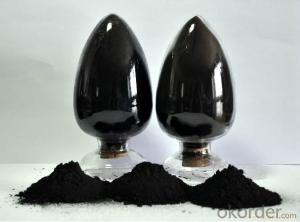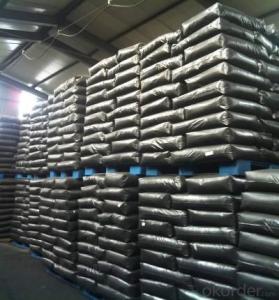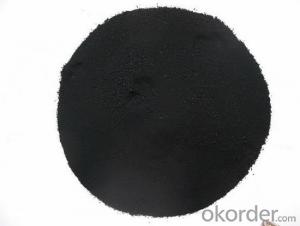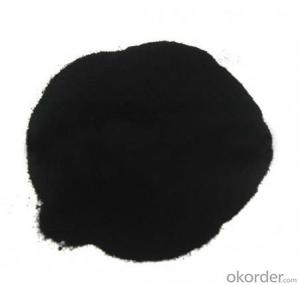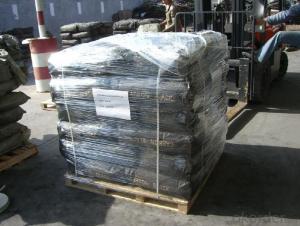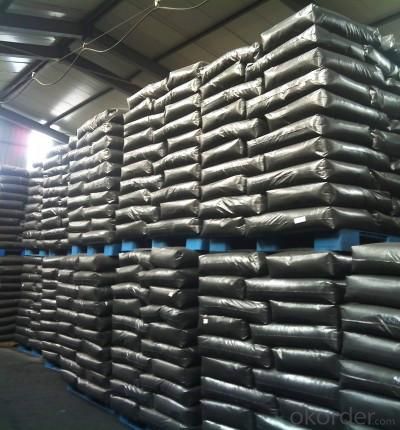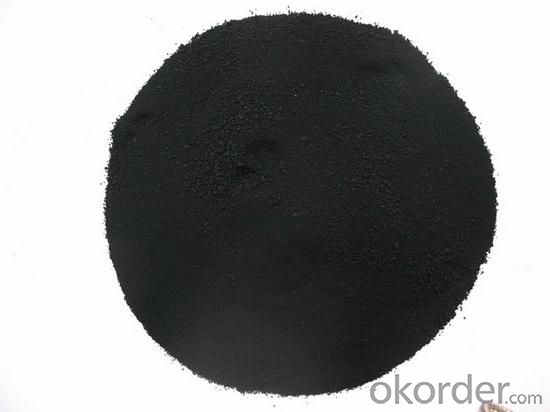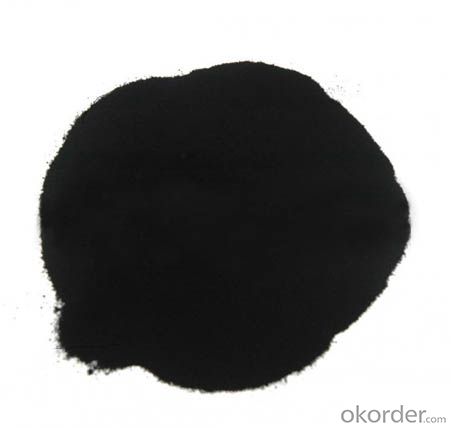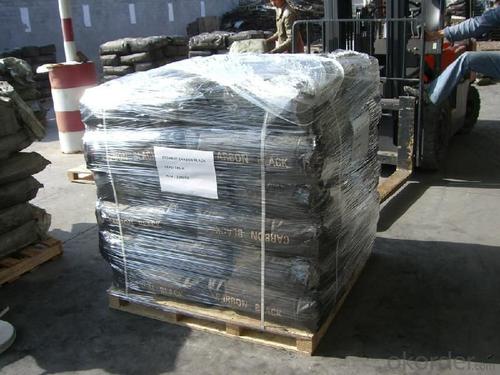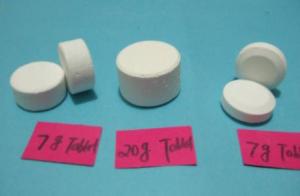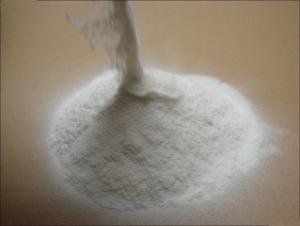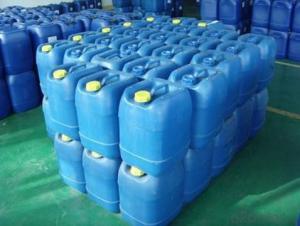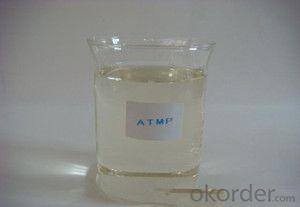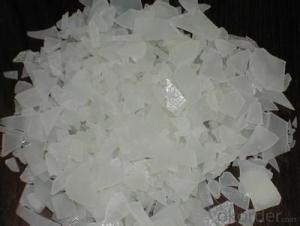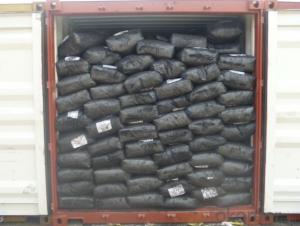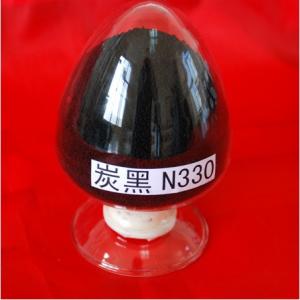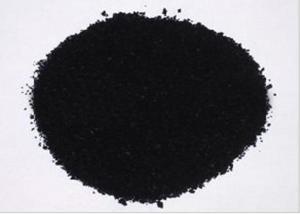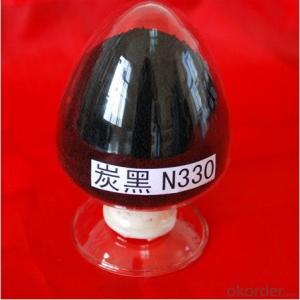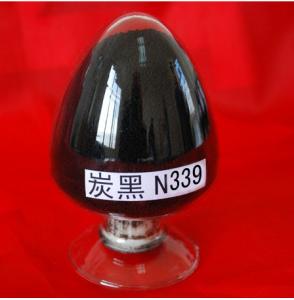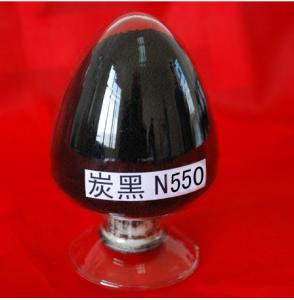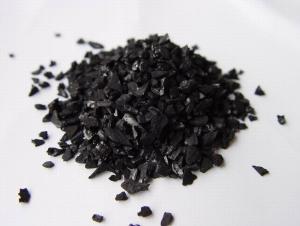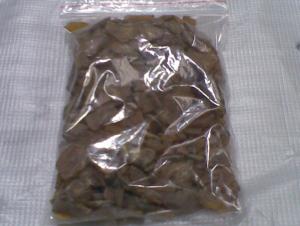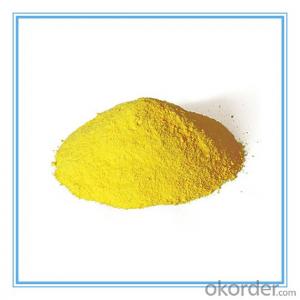Virgin type pyrolysis Carbon black N330
- Loading Port:
- Qingdao
- Payment Terms:
- TT OR LC
- Min Order Qty:
- -
- Supply Capability:
- 20000 m.t./month
OKorder Service Pledge
OKorder Financial Service
You Might Also Like
Specifications
Carbon black
1.Black powder or granular pigment
2.N220.N330.N550,N660
3.Plastic,rubber industry
4.Hight quality
Introduction:
Our company maufactures the black canton series or superior-wear resistance(N200), resistance(N300),quick-press(N500),and common(N600) of dry process and wet process maily applied to various rubber products and PVC plastic.
Specifications:
Items | N220 | N330 | N550 | N660 |
Indine absorption g/kg | 121±5 | 82±5 | 43±4 | 36±4 |
DBP Absorption | 114±5 | 102±5 | 121±5 | 90±5 |
CTAB Surface Area, | 106-116 | 79-87 | 38-46 | 31-39 |
Nireogen Surface Area, | 114-124 | 78-88 | 38-46 | 30-40 |
Tint Strength | 110-120 | 98-108 |
|
|
Heating Loss,%,max | 3.0 | 2.5 | 2.5 | 1.5 |
Ash,%,max | 0.5 | 0.5 | 0.5 | 0.5 |
Tensile strength Msp,min,% | -0.8 | -1.5 | -3.5 | -3.5 |
Exrension,%,min | +10 | -10 | -10 | +10 |
Physical data:
Odor:None
PH:6-8
Boiling point :4200
Vapor pressuer:Not applicable
Solubility in water:Not applicable
Specific gravity:1.7-2.1
Viscosity: Not applicable
Packing:25kg knitting bags top grade linerfilm,good properties of waterproof and avoid water,solarization.
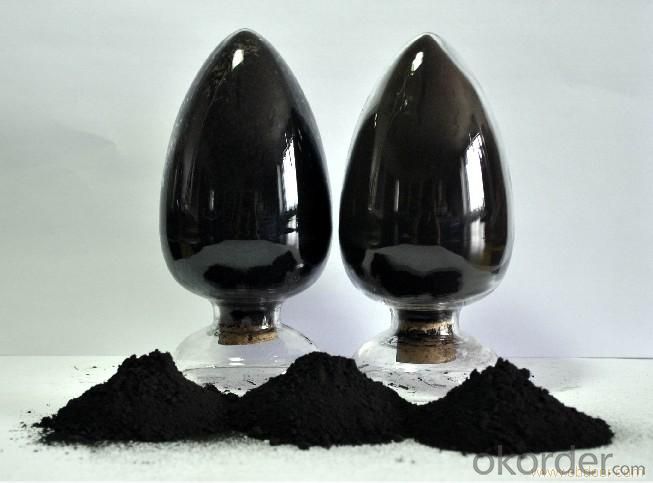
- Q: What are the chemical reaction conditions in organic chemistry are catalyst and heating, please elaborate
- This really does not have omnipotent law, their own more than one point, you can classify to remember, when I was in high school is in accordance with the notes, such as poly, polycondensation and the like. In general, the double triple bond addition, plus halogen is not the conditions, plus HCl, HBr and the like to heat; dehydration reaction generally concentrated H2SO4 heating, dehydration condensation is also; there are some special, such as ethylene added to ethanol Special temperature requirements, it seems that 120 degrees, there are other; other addition poly, polycondensation some need catalyst. The The In short, the conditions are many, in general, you do not go to the high school to do more questions after the feeling, encounter problems do not panic general experience can come out according to experience, this also depends on the usual accumulation, if the equation conditions Wrong to deduct points, it is not worthwhile. There are some questions when the examination will give you some information, whether you know do not know should see clearly, although some of the reaction but the subject to the conditions are not the same, when you do according to the title to write conditions, this will not wrong. In addition, thank you for your help, I do not seem to know you
- Q: A catalyst elevates the rate of a reaction by?
- Catalysts work by providing an (alternative) mechanism involving a different transition state and lower activation energy. Consequently, more molecular collisions have the energy needed to reach the transition state. Hence, catalysts can enable reactions that would otherwise be blocked or slowed by a kinetic barrier. The catalyst may increase reaction rate or selectivity, or enable the reaction at lower temperatures. This effect can be illustrated with a Boltzmann distribution and energy profile diagram. Take a look!
- Q: What is the catalytic efficiency of ordinary chemical catalysts?
- Different reactions, with the same catalyst, the catalytic efficiency is different. The same reaction, with different catalysts, the catalytic efficiency is also different
- Q: What is the difference between a catalyst and an oxidizing agent?
- A catalyst alters the rate of a reaction without being used up in the reaction. An oxidising agent oxidises other compounds, the agent itself being reduced in the process.
- Q: what is a catalyst?
- A catalyst helps make a reaction go forward faster or slower but a catalyst is not consumed by the reaction itself. The catalyst may participate in multiple chemical transformations. Catalysts that speed the reaction are called positive catalysts. Catalysts that slow down the reaction are called negative catalysts or inhibitors. Substances that increase the activity of catalysts are called promoters and substances that deactivate catalysts are called catalytic poisons. For instance, in the reduction of ethyne to ethene, the catalyst is palladium (Pd) partly poisoned with lead(II) acetate (Pb(CH3COO)2). Without the deactivation of the catalyst, the ethene produced will be further reduced to ethane
- Q: okay im doing a project for my classroom about catalyst and i have to draw a picture but when i looked up on google i just saw a bunch of random stuff and a couple were metal so thats why im asking this question. :)
- A catalyst most often is a metal in the form of a screen or sponge with lots of area although it can be an immiscible liquid or sand like particles that can be filtered out.
- Q: Will the catalyst in the chemical reaction be reduced?
- The amount of catalyst in the chemical reaction is not reduced, the catalyst is divided into a positive catalyst and a negative catalyst, the positive catalyst promotes the reaction, and the negative catalyst inhibits the reaction
- Q: Does anybody have any tips or references I can go to for this? I'm writing a novel and the main character wants to be a catalyst; the story isn't about him and his journey, so much as the effects on everyone around him that come about simply because of him being there and being who he is. How would I go about doing this, and doing it well?
- Ways to be a catalyst: By his behaviour: - He is a good listener. People use him as a sounding board and make important decisions as a result. - He is indiscreet and inadvertently reveals people's secrets and back-sniping comments. - He is a ****-stirring gossip. - He is a home-wrecking Lothario. - He is wise and gives good advice. - He is a hooligan who ruins businesses with vandalism, costs people their jobs and ruins relationships by beating people up. - He is a manipulative, blackmailing bastard who tries to turn every woman into a prostitute and con every man out of his money. - He is a charlatan who preaches nonsense about religion, health and business investments. By effortlessly influencing other people's behaviour: - He is famous and people try to impress him wherever he goes. - He has cancer or a disabling war wound. People admire and pity him and are shocked by his PTs mood wings. - He is gay, Muslim or a suspected paedophile and people want to persecute or cure him. - He is destitute. People argue amongst themselves over whether it's because he's lazy, has bad karma or there but for the grace of God go I. - He really looks like Jesus, Buddha or Santa and the sight of him makes people contemplate their Humanist values, coming to various conclusions. Perhaps you can write about his reputation; how he earned it, how it precedes him and provokes prejudices that he sometimes confirms or disproves. Use a detached, omniscient God-narrator. (Pretend Morgan Freeman's reading the audiobook.) Alternatively perhaps he is not a catalyst but a neurotic voyeur, fascinated by the minutiae of other people's lives so that the mundane appears tumultuous. He is not influencing people but your account of the changes in people's lives are centred on his observation of them.
- Q: how a catalyst can provide a new route in forming the product?
- catalyst speeds up the reaction... i don't know if there is actually 'a new route' in product formation because catalysts should not affect the reaction... it only has to speed up the reaction
- Q: How does the catalyst generally add to the organic chemical reaction?
- In the case of heterogeneous catalysis, the specific surface of the catalyst, in addition to the activity of the catalyst, is an important factor in determining the reaction rate, which means that the specific surface for catalysis is large and the reaction is as fast as the whole. So the overall principle in understanding the activity of the premise of the catalyst, would like to quickly add a little more.
Send your message to us
Virgin type pyrolysis Carbon black N330
- Loading Port:
- Qingdao
- Payment Terms:
- TT OR LC
- Min Order Qty:
- -
- Supply Capability:
- 20000 m.t./month
OKorder Service Pledge
OKorder Financial Service
Similar products
Hot products
Hot Searches
Related keywords
